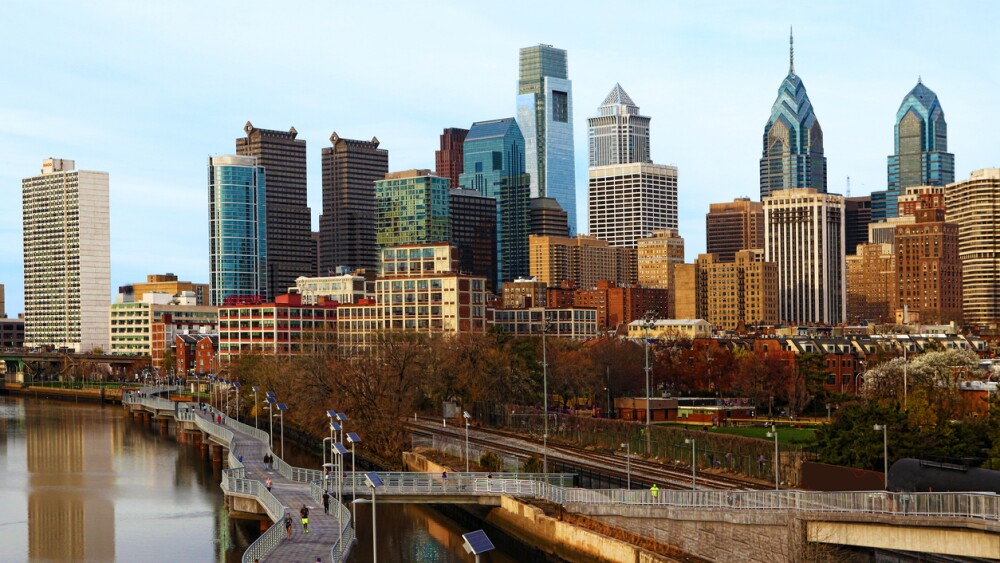The center at 455 Mission Bay South — across Third Street from the University of California, San Francisco — will house Bayer’s hematology research program. But scientists focused on cardiology, oncology, women’s health care and diagnostic imaging also will rotate through the center.
The San Francisco Business Times reported last month that Bayer inked a lease for about 50,000 square feet at the structure, which was developed by Alexandria Real Estate Equities Inc.
San Francisco Mayor Gavin Newsom, Bayer’s head of global drug discovery, Andreas Busch, and Bayer HealthCare vice president of biologics research, Terry Hermiston, are expected to make a formal announcement Monday morning.
They will be joined by Regis Kelly, director of the California Institute for Quantitative Biosciences, or QB3, which has been instrumental in forging partnerships between its University of California member institutions — UCSF, UC Berkeley and UC Santa Cruz — and private industry.
Hermiston will head Bayer’s U.S. Innovation Center.
Bayer did not say how many jobs would be housed in the center or how many might shift from Berkeley or other facilities.
The announcement will come less than two weeks after Newsom, Supervisor Michela Alioto-Pier and others capped an intensive lobbying effort as the Board of Supervisors extended the city’s biotech payroll tax exemption.
Bayer’s center is the latest victory for Mission Bay and Alexandria, its main commercial developer. The city’s biotech enclave by year end will house facilities for Bayer, one of the world’s best-known drug companies, drug powerhouse Merck & Co., Celgene Inc. and home-grown Nektar Therapeutics and FibroGen, in addition to UCSF, the J. David Gladstone Institutes and a handful of smaller biotechs.
Bayer’s center could be the backbone of the company’s plan — discussed last month by management board member Wolfgang Plischke while on a tour of facilities in Berkeley and North Carolina — to spend 3.5 billion euros (about $4.4 billion) from 2009 to 2018 on research and development and expanding its infrastructure.
The Mission Bay facility specifically introduces Bayer’s idea of a “science hub” for collaborations with academic researchers and small biotech companies. Bayer’s involvement, the company hopes, would help those partners translate their discoveries into new therapies.
Hematology, in particular, has been an important area for Bayer. Its Berkeley facility, where last summer it committed to a $100 million expansion, makes the hemophilia drug Kogenate.
Kogenate is the world’s second-best-selling hemophilia drug and Bayer’s No. 3 brand globally with 2009 sales of 888 million euros (about $1.1 billion).
Bayer employs about 1,300 people in Berkeley.
The Berkeley expansion, one of Bayer’s largest capital investments, is expected to be completed in 2013.
Berkeley and Leverkusen, Germany, have been Bayer’s two biggest research facilities.
Women’s health, diagnostic imaging and oncology are among Bayer’s pillars, Dr. Michael Yeomans, senior vice president of global business development and licensing for Bayer Schering Pharma AG, said at the recent Biotechnology Industry Organization convention in Chicago.
Bayer earlier this month cut a deal with EndoCeutics Inc. of Canada, which has a product in Phase III trials for vaginal atrophy and female sexual dysfunction.
Bayer’s move to Mission Bay also helps Alexandria nearly fill its latest development — and, along the Third Street spine of Mission Bay, one of its most visible.
Alexandria initially developed more than half of the 200,000-square-foot structure for Pfizer Inc.’s Biotherapeutics and Bioinnovation Center, which was to work closely with UCSF to find and commercialize treatments outside the traditional R&D structure of the world’s largest drug maker.
Pfizer, however, opted not to move the facility and its 100 jobs from South San Francisco after the company’s $68 billion merger with Wyeth. Pfizer then subleased its part of the building to Nektar.
Nektar will move into the structure in the fourth quarter — the same timeframe Bayer has given for opening its labs in Mission Bay.
Read more: Bayer to build U.S. innovation center in S.F.'s Mission Bay - San Francisco Business Times:




